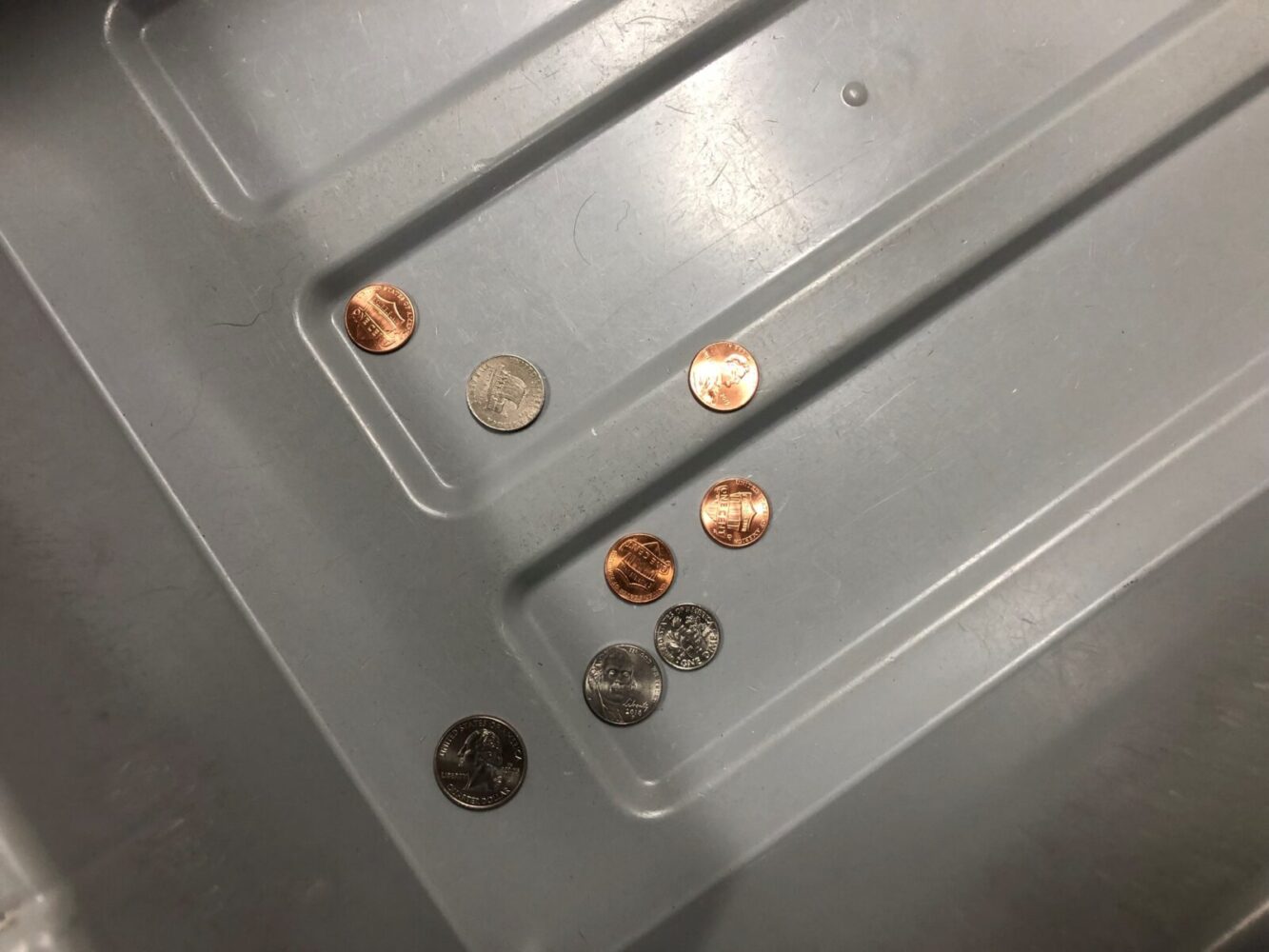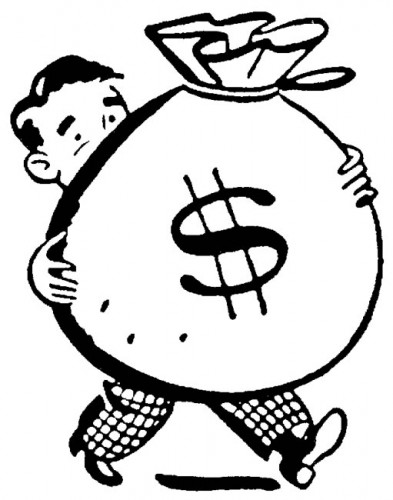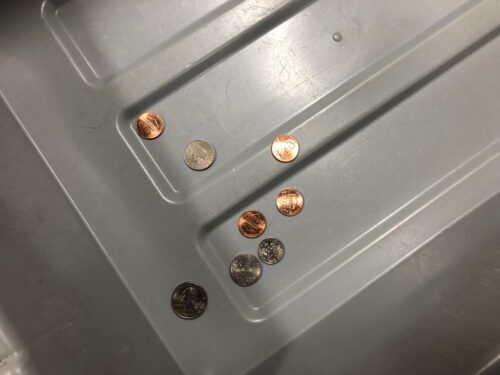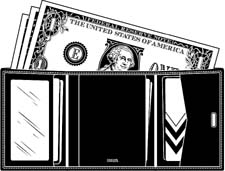
At airports, it’s not unusual to hear an announcement asking a traveler to return to the security checkpoint to retrieve a left-behind item.
On Sunday, for example, while waiting for an early morning flight, we heard repeated announcements asking the person who left their wedding band behind at the checkpoint to come and get it.
But we’ve never heard an announcement asking the passenger who left behind 72 cents in the bottom of a checkpoint tray to come back to retrieve that cash.
What happens to all coins and cash left behind?
Turns out, the TSA (not the agents on duty) collects and gets to keep all the cash and coins left in the bins at the security checkpoints. And it can spend the money any way it chooses “to provide civil aviation security.”
How much money are we talking about?
Quite a bit.
In Fiscal Year 2022, travelers left behind cash and coins totaling $835,850.71 at the security checkpoints.
That’s up quite a bit from FY 2021, during which time TSA collected $653,687.64 in unclaimed money.
But not as much as during FY 2019, when $926,030.44 was collected.
According to a report that the Department of Homeland Security submitted to Congress in May 2023, the FY 2022 funds, combined with unclaimed money collected in prior years totaled $2,219,065.74.
Out of that total, the Department of Home Security reports, TSA obligated $995,032.52 in FY 2022 for wireless and telecommunication equipment to support checkpoint operations for field personnel, of which just $1,023.25 was expended during the year.

Where did travelers leave TSA the most tips?
The hub airports where travelers left the largest “tips” for TSA include:
John F. Kennedy International Airport (JFK): $59,980.00
Harry Reid International Airport (LAS): $43,228. 80
Chicago O’Hare Airport (ORD): $39,873.68
San Francisco International Airport (SFO): $38,729.92
and Los Angeles International Airport (LOS): $35,019.45
By contrast, only $109.45 in unclaimed funds were left behind at Dallas Love Field (DAL).

